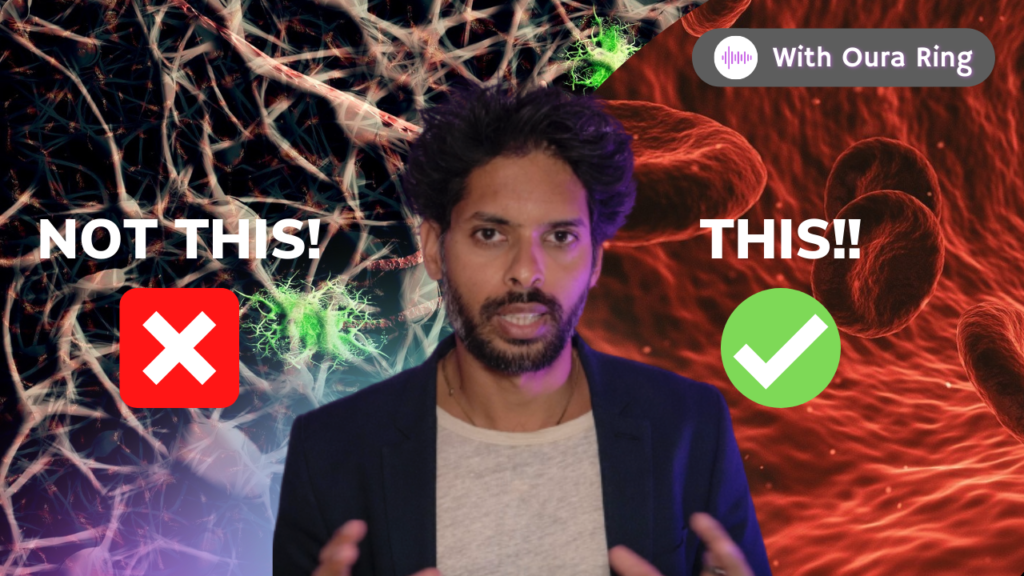3 Scientifically Proven Exercises to Prevent Dementia
Learn to take care of your brain early to reduce cortical decline and gain a lifetime of benefits.
One in every 2 people over the age of 85 has dementia. What is not so well known is that the onset of dementia begins as early as 30 years of age.
When we fail to take care of the brain, we begin to see cognitive lag – taking longer to remember, mental fatigue and even confusion such as not know where you were going when you get in the car.
We cannot treat the brain as a inexhaustible resource.
The brain is a metabolically expansive structure. At rest your brain uses a staggering 20% of your metabolic energy even though, it only weighs 2% of your body mass. This is 10 times more than any other organ.
This metabolic energy is distributed to the brain by our blood flow. This brain-region specific blood flow is highly precise and allows neuroscientists to generate functional MRI images using Blood Oxygen Level Depend (BOLD) signal such as the one below.
The moment to moment fluctuation in our blood flow is the direct result of our heart rate variability (HRV).
If you ever wanted proof of how intimately the brain and heart is connected, this is it!
Every time we are under stress, it puts pressure on our cardiac output and mental resources. Stress by itself is not harmful, it is actually natural when we are learning new things, testing our comfort zones and facing our fears. What hurts the brain is when we are unable to recover from stress. The compounding effects of stress means that the brain is unable to clear the build up of toxins, dead nerve cells and plague which is the accumulation of beta-amyloid protein.
The build up of toxins activates the immune system and can result in inflammation. In severe cases, the brain can even attack itself resulting in autoimmune conditions such as multiple sclerosis and greatly accelerate cortical thinning in the case of Dementia.
Now let’s have a look at 3 scientifically proven ways to prevent dementia altogether.
#1 HRV Balance
Stressing less is not the answer. For some this can be a coping mechanism of just sitting in front of the TV and avoiding stress altogether. After all, a healthy amount of stress is necessary to strengthen the nervous system. What is required is a specific, measurable and tangible way to maintain a healthy and agile nervous system. To date, the best indicator of mental and physical health is your heart rate variability.
Your HRV is a sensitive measure that is affected by coffee intake, alcohol consumption, sleep and exercise. As such, it is a primary indicator of the health of your nervous system. High HRV means that your brain and body is getting enriched with activity and recovering just as quickly. Low HRV can mean that your body isn’t getting enough exercise, your metabolism could be low, your blood pressure could be high and your are recovering poorly from stress.
Fortunately, HRV can be accurately tracked using consumer grade wearable devices and what can be measured can be improved. To learn more about HRV biofeedback training in this video.
#2 Sleep
How well you sleep depends on what you do during the day. Your energy levels and how active you feel during the day is determined by your circadian rhythm. The circadian rhythm is cued by light and resets every 24-hours. Sleep itself is induced by melatonin produced by the pineal gland. When the light cue is altered, for example when you feel jet-legged in a different timezone, it takes a while for the circadian rhythm to adjust to a new cycle.

If you are not getting a good night’s sleep, waking up feeling exhausted and compensating by taking your routine coffee than, you are preventing the brain from recovering properly.
Sleep plays the most underrated role in brain health!
The brain is protected in the cranial cavity by a layer of fluid called the cerebrospinal fluid (CSF). What is not widely understood is that the CSF play a second function. Each night you sleep the CSF is washed out – cleaning the brain of toxins, dead nerve cells and plague – the very precursors to Alzheimer’s Disease!
The best thing that you can do to optimise sleep is set a sleep alarm. Yes, that right – not a wakeup alarm but a sleep alarm. A sleep alarm reminds you to start winding down an hour before bed-time. This means turning off mobile devices, turning down the lights and engaging in nurturing activities such as reading a book, playing calming music or meditating. I also recommend having dinner an hour before the sleep alarm.
Similar to HRV monitors, there are wearable devices that monitor your activities and notify you when to start winding down. I personally use the Oura ring which I have reviewed here.
#3 Physical Activity
It is perhaps obvious by now that the key to preventing dementia is quite simple. Having high HRV means that you are able to wind down quickly and fall asleep easily. A GOOD night’s sleep greatly improves your recovery index which means that you don’t need a shot of coffee to get going, instead you wake up refreshed and ready for action.
Cardio is frequently recommended for exercise. This is great as long as HRV is high however, this is poor advice for someone who is stress, has high blood pressure and low HRV. As you get older, the muscle fibres get more ridged and the nervous system more tense – this chronic tension is known as hypertonicity. Forceful and explosive movements can lead to injury if your nervous system is not agile and adaptive already.
What I recommend is restorative movement which is part of my Train your Nervous System Online Course. These movement exercises don’t require any skill, strength, force or momentum. The exercises are designed to improve spatial awareness, navigation, proprioception and memory. The very nature of these exercises induces balance and fluidity and will make you feel more relaxed and adaptive.
Best of all, these exercises are restorative for the nervous system and stimulates the production of Brain-derived Neurotrophic Factor (BDNF) which is a natural antidepressant and essential for the survival and growth of new neurons.
BDNF acts in a similar manner to the Human Growth Hormone and is well known for it’s involvement in learn, memory and neuroplasticity.
Bonus #4 Learn New Skills
It goes without saying that learning new skills enriches the brain and is neuroprotective. In my Train your Nervous System Online Course I show you the five different ways you can learn which you can watch for free – no sign up, no hassle.
There is no better protection from dementia than prevention itself.

Use My Proven Nervous System Training Trusted by Busy Executives to Eliminate Anxiety Permanently!


